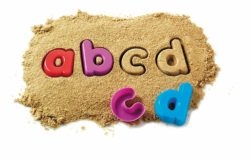No products in the cart.
Literacy Toys
Pre-writing & Fine Motor Skills Toys
Explore pre-writing and fine motor skills toys.
These fine motor skills toys develop the finger and hand muscles to help children learn writing.
FILTER
Age
- 1
- 2
- 3
- 4
- 5
- 6
- 7
- 8
- 9
- 10
- 11
- 12+
Product Type
- Accessories
- Arts & Crafts
- Books
- Flashcards & Wipe-Clean
- Games
- Jigsaws & Puzzles
- Learning Resources
- Toys
Stage
- Babies
- Early Years
- Primary KS1
- Primary KS2
- Toddlers
Skill
- Communication Skills
- Creativity
- Discovering the World
- Fine Motor Skills
- Health & Self-care
- Imagination
- Independent Learning
- Languages
- Listening
- Literacy
- Managing Feelings
- Mathematical Skills
- Memory
- Mindfulness
- Observational Skills
- Physical Development
- Problem Solving
- Reading
- Scientific Skills
- Self-assessment
- Self-confidence
- Social Skills
- Speaking
- Thinking Skills
- Understanding
- Writing
Areas of Learning
- Arts and Design
- Communication & Language
- Literacy
- Mathematics
- Personal, Social & Emotional Development
- Physical Development & Fine Motor Skills
- Understanding the World
Subject
- Arts and Design
- Design & Technology (DT)
- English
- Geography
- History
- ICT
- Languages (MFL)
- Mathematics
- Physical Education (PE)
- Science
Languages
- Arabic
- Bilingual
- English
- French
- German
- Mandarin Chinese
- Polish
- Russian
- Spanish
- Welsh
Brand
- 25th Century Games
- 4M
- Abrams Books
- Action Phase Games
- Alderac Entertainment Group
- Alley Cat Games
- Amazing Tales
- Andersen Press
- Andrew Brodie Publications
- Arcane Tinmen
- Arcane Wonders
- Ares Games
- Asmodee Editions
- Atlas Games
- Atomic Mass Games
- Awaken Realms
- b small publishing
- Baby Einstein
- Bandai
- Barefoot Books
- Barrington Stoke
- Battlefront Miniatures
- Beehive Toys
- Bezier Games
- Bezzerwizzer
- Big G Creative
- Big Sky Games
- BigJigs Toys
- Blackrock Editions
- Bloomsbury
- Blue Cocker Games
- Blue Orange
- Board And Dice
- Board Game Hub
- Bombyx
- Boxer Books
- BrainBox
- Brother Wize Games
- Bushiroad
- Buster Books
- Cambridge Brainbox
- Candylab
- Capstone Games
- Catan Studios
- Cephalofair Games
- Cheapass Games
- Chessex
- Chronicle Books
- Cicada
- Cool Mini Or Not Inc
- Curiscope
- CWR
- Dantoy
- Didicar
- DK
- DT
- EDU-QI
- EDUPLAY
- Edx Education
- Egmont
- Emaan Productions
- Faber & Faber
- Fat Brain Toys
- Fine Feather Press
- Flying Eye
- Galison Mudpuppy
- Galt Toys
- Gamelyn Games
- Gamewright
- Gecko Press
- GeoSmart
- Gigamic
- GoGo
- Gowi Toys
- Graffeg
- Great Gizmos
- Green Toys
- HABA
- Hape
- Happy Cube
- Hinkler Books
- Horrible Games
- Ivy Kids
- Jar Meló
- Klutz
- Knowledge Builder
- Kumon Publishing
- Lanka Kade
- LeapFrog
- Learning Resources
- Lerner
- Letterland
- Lexie Mouse Publishing
- Lincoln Children's Books
- Little Island
- Little Tiger
- Little Wise Toys
- LOM Art
- Lonely Planet
- Lottie
- Mad Mattr
- Magic Cat
- Make It Real
- Mary Meyer
- masterkidz
- Melissa & Doug
- Michael O'Mara
- MindWare
- Mobilo
- MOLUK
- Moondance Press
- Morphun
- nanoblock
- Nebulous Stars
- Nosy Crow
- Orchard Toys
- Otter-Barry Books
- Page Street Publishing
- Paul Lamond
- Pavilion
- Petit Collage
- Plan Toys
- Playcolor
- Playmobil
- Poptacular
- Primo
- Princeton Architectural Press
- QED
- Quercetti
- Raintree
- Renegade Game Studio
- Rubbabu
- Rubik's
- Santoys
- Sassi
- Scallywag
- Schofield & Sims
- Scholastic
- Scrunch
- Shade 7 Publishing
- Shaw Magnets
- Skillmatics
- Skip Hop
- Smart Games
- Smartivity
- SmartMax
- Sourcebooks
- Storey Publishing
- Tactic
- Tate Publishing
- The Green Board Games Co
- The Puppet Company
- TickIT
- Tidlo
- Top Class
- Twirl Publishing
- Usborne
- Verdes Innovations
- Viga
- Walker Books
- Welbeck
- What on Earth
- Wide Eyed Editions
- Wilberry
- Wiz Kids LLC
- words & pictures
- WordUnited
- Workman Publishing
- Yoyo Books
- Z-Man
- ZooBooKoo
Stock status
- In Stock
- Out of Stock
Showing 1–12 of 90 results
-
Sale!
 Sale!
Sale!


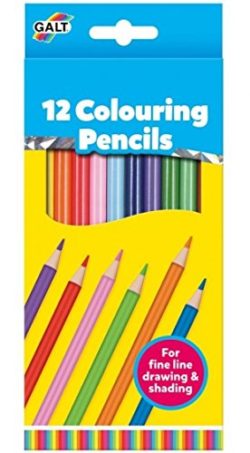

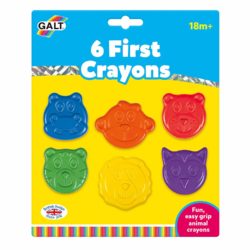

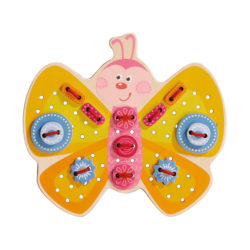

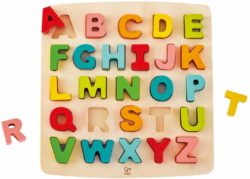

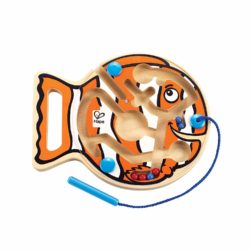

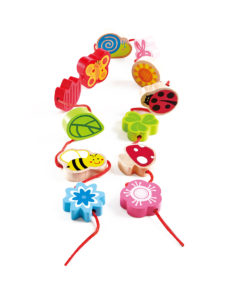

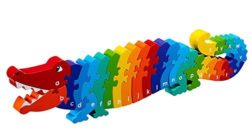

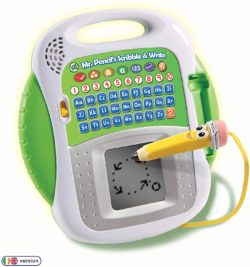
Pre-writing Skills & Pre-writing Toys
Pre-writing skills are the basic skills children need to develop before they can write. These skills are fundamental to a child’s ability to hold a pencil and use it to draw and write. Just like toddlers crawl, walk, then run, kids need to master pencil control and other pre-writing skills then slowly progress towards writing legibly. Children whose pre-writing skillsare not developed properly tend to lag behind when it’s time to write in school. They might, therefore, become frustrated and end up developing a negative attitude towards writing. Such an attitude might result in low self-esteem and poor academic performance. Fine motor skills are essential to develop writing and literacy.
Kids also need to develop proper hand-eye coordination, visual perceptual skills (be able to determine the size and shape of objects), and bilateral coordination (using one hand to write and the other to hold the paper). They also need to do activities that extend their attention span and cognitive skills.
Pencil Control
A significant component of pre-writing skillsis pencil control. A variety of pencil control activities can develop children’s ability to hold and manipulate a pencil. Such activities help to strengthen kids hand muscles so they can be able to complete the pencil strokes needed for letters. Children progress through a series of pre-writing activitiesthat teach them how to make marks on paper. At first, they begin to scribble intelligibly on paper. As their pre-writing skillsdevelop, they begin to pick up the pencil strokes that make up letters, numbers. These strokes include +, Δ ,square|, —, O, \, and X. Free resources can also be an excellent, yet affordable, tool for preschool-aged kids to learn proper letter formation.
Fine Motor Skills Toys
In addition to mastering the pencil control activitiesrequired to write the lines and shapes, children also need to develop fine and gross motor skills. Gross motor skills enable them to maintain proper posture and remain upright while writing. Fine motor activities involve the careful control of small muscles in the hands—movements that allow children to perfect their pencil control. These activities include scribbling, colouring, drawing, and writing.
Fine and Gross Motor Skills
For children to be able to master pre-writing skills, they need to begin with a solid foundation. This foundation includes having enough fine motor developmentto form legible handwriting. Kids need to have a solid base of support that is derived from strong gross motor skills and movements. Gross motor activities develop a strong core that enables kids to sit up straight, strong neck muscles for precise head movement, shoulder strength to enable movement of the arms and wrist, and finger strength to hold and control a pen.
Outdoor activities can help children develop a solid core and neck, and significantly improve their pre-writing skills. It is vital to encourage children to play with physical objects during their play time to help fine motor skills development.
Fine Motor Activities EYFS
Fine motor activitiesinvolve the use of the smaller muscle of the hands to write, cut with scissors, or thread beads onto a piece of string. Playing with fine motor skills toys such as tweezers, mazes, dough cutters, threading letters, during toy time are also great ways for kids’ fine motor skills development.
Fine motor activitiesdevelop the hand strength that kids need to grasp a pencil and the finger dexterity and strength that they need for writing. Not being able to complete these activities lowers a child’s self-esteem, negatively affects their academic performance, and limits their play options. A child’s level of fine motor development significantly influences how well and how fast they can write.
These fine motor skills activities not only help children with pre-writing skills, but they also help them perform self-care activities like dressing themselves, handling cutlery when eating, and brushing their teeth.
Threading toys
Threading toys are some of the best fine motor skills toys that develop children’s ability to grasp different size objects. Larger beads develop the ability to hold large pencils using the 3-finger grasp. Smaller beads promote the use of the pincer grip needed for smaller sized pens. When kids make bead patterns, their finger strength and coordination of the smaller muscles of their hands and fingers significantly improves.
Threading toys also help develop visual perceptual skills, as kids have to remember the beading pattern and choose the particular bead. Threading beads onto a string requires simultaneous movement of both hands and improves a child’s hand-eye coordination. Creating specific bead patterns also helps improve cognitive, planning, and problem-solving skills. It is also a way to teach children to count. Kids can play with threading toys in groups, which improves their social skills.



 01782 698558
01782 698558




